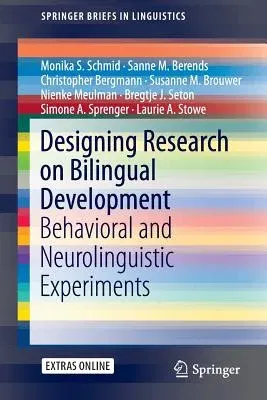Monika S Schmid
(Author)Designing Research on Bilingual Development: Behavioral and Neurolinguistic Experiments (2015)Paperback - 2015, 5 August 2015

Qty
1
Turbo
Ships in 2 - 3 days
In Stock
Free Delivery
Cash on Delivery
15 Days
Free Returns
Secure Checkout
Part of Series
Springerbriefs in Linguistics
Print Length
107 pages
Language
English
Publisher
Springer
Date Published
5 Aug 2015
ISBN-10
3319115286
ISBN-13
9783319115283
Description
Product Details
Authors:
Book Edition:
2015
Book Format:
Paperback
Country of Origin:
NL
Date Published:
5 August 2015
Dimensions:
23.39 x
15.6 x
0.61 cm
ISBN-10:
3319115286
ISBN-13:
9783319115283
Language:
English
Location:
Cham
Pages:
107
Publisher:
Weight:
172.36 gm

